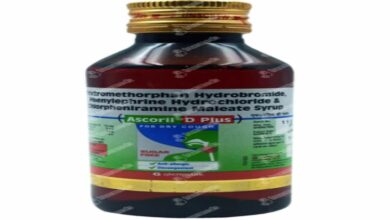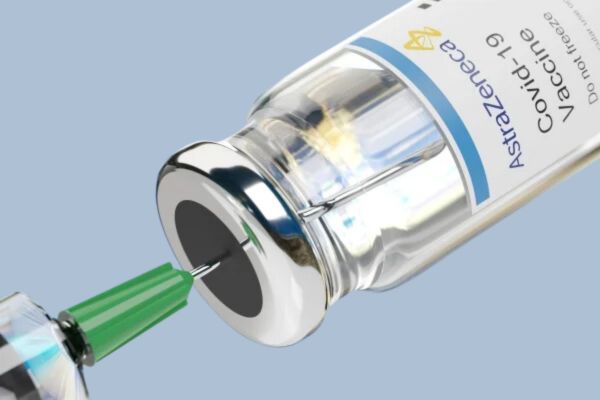In the world of performance enhancement, particularly in the context of anabolic and prohormone cycles, there exists a critical but often overlooked component known as On-Cycle Support (OCS). This article aims to shed light on the significance of OCS in safeguarding long-term health amidst substance cycles.
Understanding On-Cycle Support
The term on cycle support refers to a regimen of supplements administered concurrently with the use of certain substances to mitigate potential adverse effects and promote overall health. It encompasses a range of strategies aimed at safeguarding vital organs, maintaining hormonal balance, and reducing the likelihood of side effects associated with substance usage.
Benefits of On-Cycle Support
Protection of vital organs such as the liver, kidneys, and heart:
OCS plays a pivotal role in shielding vital organs from the harmful effects of cycles. Compounds used during cycles can exert significant strain on organs like the liver, kidneys, and heart. OCS components such as antioxidants, liver support agents, and cardiovascular protectants act as a defensive barrier, mitigating oxidative stress and preserving organ function.
- Liver Support:
The liver plays a central role in metabolizing substances, which can exert significant strain on this vital organ. OCS incorporates liver support agents such as N-acetylcysteine (NAC), milk thistle extract, and alpha-lipoic acid, which help to mitigate oxidative stress, promote liver regeneration, and enhance detoxification processes.
- Kidney Protection:
The kidneys are responsible for filtering metabolic waste products and maintaining electrolyte balance. Certain substances, especially those with high androgenic properties, can increase the risk of renal damage. OCS includes measures to support kidney health, such as hydration strategies, antioxidants like vitamin C, and dietary modifications to reduce the burden on renal function.
Maintenance of hormonal balance and overall well-being:
Hormonal fluctuations are inevitable during substance cycles, which can lead to various adverse effects ranging from mood swings to libido issues. OCS incorporates supplements that help regulate hormone levels, ensuring a smoother transition throughout the cycle and mitigating post-cycle imbalances. Furthermore, by supporting overall well-being through micronutrient supplementation and adaptogens, OCS fosters a conducive environment for optimal performance and recovery.
- Hormone Regulation:
Hormonal imbalances are a common concern during the cycle. With potential consequences ranging from mood swings to reproductive dysfunction. OCS can include additional components such as aromatase inhibitors, selective estrogen receptor modulators (SERMs), and human chorionic gonadotropin (hCG), which help to modulate the activity of key enzymes involved in metabolism, minimize estrogen-related side effects, and preserve endogenous hormone production.
Reduction of side effects associated with certain substances:
Many substances used in performance enhancement carry the risk of undesirable side effects, ranging from acne and hair loss to more severe complications like gynecomastia and cardiovascular issues. OCS protocols often include compounds that counteract these side effects, either by inhibiting their occurrence or mitigating their severity. By addressing potential risks proactively, OCS empowers individuals to navigate substance cycles with greater confidence and safety.
Strategies for Implementing On-Cycle Support
Different methods of administering OCS:
OCS can be administered in various forms, including oral supplements, injectables, and transdermal applications. The choice of administration method depends on factors such as individual preferences, convenience, and the specific substances being used. Some individuals may opt for standalone OCS products, while others prefer customized protocols tailored to their unique needs.
- Oral Supplements:
On cycle supplements are a convenient and accessible way to administer OCS components. Capsules, tablets, and liquid formulations offer flexibility in dosing and allow for easy incorporation into daily routines.
- Injectable Formulations:
Some OCS components are available in injectable formulations, offering the advantage of enhanced bioavailability and rapid onset of action. Injectable agents are commonly used for liver support (e.g., glutathione injections) and hormone modulation (e.g., hCG injections).
- Transdermal Applications:
Transdermal patches or creams provide an alternative route of administration for certain OCS components, offering sustained release and minimizing gastrointestinal side effects. Transdermal formulations may be used for hormone replacement therapy (e.g., testosterone patches) or localized delivery of anti-inflammatory agents.
Considerations for choosing appropriate supplements or medications:
When selecting OCS components, careful consideration should be given to their efficacy, safety profile, and compatibility with the primary substances being used. Commonly utilized OCS agents include N-acetylcysteine (NAC) for liver support, coenzyme Q10 for cardiovascular health, and aromatase inhibitors for estrogen management. It is essential to research each component thoroughly and consult with healthcare professionals to ensure optimal selection and dosing.
- Efficacy and Safety:
When selecting OCS components, it is essential to consider their efficacy in mitigating specific risks associated with substance usage. Additionally, the safety profile of each component should be carefully evaluated to minimize the risk of adverse effects or drug interactions.
- Compatibility with Primary Substances:
OCS components should be chosen based on their compatibility with the primary substances being used in the cycle.
- Individual Response and Tolerance:
Individual responses to OCS components can vary based on factors such as genetics, underlying health conditions, and concurrent medications. It is essential to monitor individual tolerance and adjust the OCS regimen accordingly to optimize efficacy and minimize adverse effects.
Importance of consulting healthcare professionals for personalized advice:
While there is a wealth of information available on OCS strategies, individual circumstances vary, and one-size-fits-all approaches may not suffice. Consulting with healthcare professionals, particularly those knowledgeable about sports medicine and endocrinology, is paramount for developing personalized OCS protocols. Healthcare professionals can assess individual risk factors, recommend tailored interventions, and monitor progress to optimize health outcomes.
- Risk Assessment:
Healthcare professionals, particularly those with expertise in sports medicine and endocrinology, can conduct comprehensive risk assessments to identify individual vulnerabilities and tailor OCS protocols accordingly. Factors such as age, medical history, and baseline health status should be taken into account when designing personalized OCS regimens.
- Monitoring and Adjustment:
Regular monitoring of biomarkers, hormone levels, and organ function parameters is essential to assess the efficacy of OCS interventions and detect any emerging health issues. Healthcare professionals can guide appropriate monitoring protocols and make adjustments to the OCS regimen as needed to optimize health outcomes.
Role of On-Cycle Support in Preventing Long-Term Health Issues
Protection of vital organs:
By mitigating oxidative stress, inflammation, and other harmful mechanisms associated with substance usage, OCS plays a crucial role in preserving the structural and functional integrity of vital organs. Long-term protection against conditions such as liver cirrhosis, renal failure, and cardiovascular disease is achievable through diligent adherence to OCS protocols.
- Liver Health:
By mitigating oxidative stress, inflammation, and other mechanisms of liver injury, OCS plays a crucial role in preserving hepatic function and preventing long-term complications such as liver cirrhosis and hepatocellular carcinoma.
- Renal Function:
OCS interventions aimed at supporting kidney health can help to mitigate the risk of renal damage and reduce the incidence of conditions such as acute kidney injury and chronic kidney disease.
- Cardiovascular Protection:
Through its cardioprotective effects, OCS contributes to the prevention of cardiovascular diseases and heart failure, thereby reducing the risk of premature mortality.
Regulation of hormone levels:
Hormonal imbalances resulting from substance cycles can have far-reaching implications for health and well-being. OCS helps regulate hormone levels by modulating the activity of enzymes involved in metabolism, promoting the synthesis of endogenous hormones, and minimizing the suppressive effects of exogenous substances. Sustaining optimal hormonal balance is essential for fertility, mood stability, and overall metabolic health.
- Endocrine Homeostasis:
OCS helps maintain endocrine homeostasis by modulating the activity of key enzymes involved in metabolism. By preserving the balance between androgens, estrogens, and other hormones, OCS minimizes the risk of hormonal imbalances that can lead to fertility issues, mood disturbances, and metabolic dysregulation.
- Preservation of Gonadal Function:
Hormonal modulation through OCS protocols aims to preserve gonadal function by supporting the hypothalamic-pituitary-gonadal (HPG) axis. By stimulating endogenous testosterone production and preventing testicular atrophy, OCS reduces the risk of hypogonadism and facilitates post-cycle recovery.
Examples of on-cycle support protocols:
OCS protocols vary depending on individual needs and the specific substances being used. However, a typical OCS regimen may include components such as:
- Liver support: N-acetylcysteine (NAC), milk thistle extract, and alpha-lipoic acid.
- Cardiovascular protection: Coenzyme Q10, fish oil, and Hawthorn berry extract.
- Hormone regulation: Hormone regulation during substance cycles involves the use of aromatase inhibitors to prevent estrogenic side effects, selective estrogen receptor modulators (SERMs) to mitigate gynecomastia and human chorionic gonadotropin (hCG) to maintain testicular function and stimulate endogenous testosterone production. These interventions help preserve hormonal balance and minimize adverse effects.
- General health support: Multivitamins, minerals, and adaptogenic herbs.
To Sum Up
On-Cycle Support (OCS) represents a cornerstone of responsible cycling in the realm of performance enhancement. By addressing the multifaceted challenges posed by usage, OCS promotes long-term health and mitigates the risks of adverse effects. Through targeted interventions aimed at protecting vital organs, regulating hormone levels, and supporting overall well-being, OCS empowers individuals to pursue their fitness goals with confidence and safety. Collaboration with healthcare professionals and adherence to personalized OCS protocols are essential for optimizing health outcomes and minimizing the potential for long-term complications. As the landscape of performance enhancement evolves, the integration of OCS into comprehensive harm reduction strategies remains paramount for safeguarding the health and well-being of athletes and fitness enthusiasts alike.

 Community Health Initiatives: How Local Engagement Improves Overall Well-being
Community Health Initiatives: How Local Engagement Improves Overall Well-being Unlocking the Benefits of Medicare Part D Plans for 2025
Unlocking the Benefits of Medicare Part D Plans for 2025 Comparing Ascoril D Plus with other cough syrups and expectorants on the market
Comparing Ascoril D Plus with other cough syrups and expectorants on the market AstraZeneca’s Covishield To Cause Rare Yet Serious Side Effects
AstraZeneca’s Covishield To Cause Rare Yet Serious Side Effects Reinforce Your Smile: Discover the Benefits of Hydroxyapatite Toothpaste
Reinforce Your Smile: Discover the Benefits of Hydroxyapatite Toothpaste Shilajit for Women: Balancing Hormones and Supporting Wellbeing
Shilajit for Women: Balancing Hormones and Supporting Wellbeing Learn All About Truck Accident And What a Truck Accident Lawyer Can Help
Learn All About Truck Accident And What a Truck Accident Lawyer Can Help Fever: Symptoms, Treatments, Types, and Causes
Fever: Symptoms, Treatments, Types, and Causes